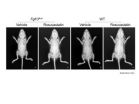(Press-News.org) Artificial sweeteners, promoted as aids to weight loss and diabetes prevention, could actually hasten the development of glucose intolerance and metabolic disease; and they do it in a surprising way: by changing the composition and function of the gut microbiota – the substantial population of bacteria residing in our intestines. These findings, the results of experiments in mice and humans, were published today in Nature. Among other things, says Dr. Eran Elinav of the Weizmann Institute's Immunology Department, who led this research together with Prof. Eran Segal of Computer Science and Applied Mathematics Department, the widespread use of artificial sweeteners in drinks and food may be contributing to the obesity and diabetes epidemic that is sweeping much of the world.
For years researchers have been puzzling over the fact that non-caloric artificial sweeteners do not seem to assist in weight loss, and some studies have suggested they may even have an opposite effect. Graduate student Jotham Suez in Elinav's lab, who led the study, collaborated with graduate students Tal Korem and David Zeevi in Segal's lab and Gili Zilberman-Shapira in Elinav's lab in discovering that artificial sweeteners, even though they do not contain sugar, nonetheless have a direct effect on the body's ability to utilize glucose. Glucose intolerance – generally thought to occur when the body cannot cope with large amounts of sugar in the diet – is the first step on the path to metabolic syndrome and adult-onset diabetes.
The scientists gave mice water laced with the three most commonly used artificial sweeteners – in the equivalent amounts to those permitted by the FDA. These mice developed glucose intolerance, as compared to mice that drank water, or even sugar water. Repeating the experiment with different types of mice and different doses of the sweeteners produced the same results – these substances were somehow inducing glucose intolerance.
Next, the researchers investigated a hypothesis that the gut microbiota are involved in this phenomenon. They thought the bacteria might do this by reacting to new substances like artificial sweeteners, which the body itself may not recognize as "food." Indeed, artificial sweeteners are not absorbed in the gastrointestinal tract, but in passing through they encounter trillions of the bacteria in the gut microbiota.
The researchers treated mice with antibiotics to eradicate many of their gut bacteria; this resulted in a full reversal of the artificial sweeteners' effects on glucose metabolism. Next, they transferred the microbiota from mice that consumed artificial sweeteners to 'germ-free' mice – resulting in a complete transmission of the glucose intolerance into the recipient mice. This, in itself, was conclusive proof that changes to the gut bacteria are directly responsible for the harmful effects to their host's metabolism. The group even found that incubating the microbiota outside the body, together with artificial sweeteners, was sufficient to induce glucose intolerance in the sterile mice. A detailed characterization of the microbiota in these mice revealed profound changes to their bacterial populations, including new microbial functions that are known to infer a propensity to obesity, diabetes and complications of these problems in both mice and humans.
Does the human microbiome function in the same way? Elinav and Segal had a means to test this as well. As a first step, they looked at data collected from their Personalized Nutrition Project, the largest human trial to date to look at the connection between nutrition and microbiota. Here, they uncovered a significant association between self-reported consumption of artificial sweeteners, personal configurations of gut bacteria and the propensity for glucose intolerance. They next conducted a controlled experiment, asking a group of volunteers who did not generally eat or drink artificially sweetened foods to consume them for a week and then undergo tests of their glucose levels as well as their gut microbiota compositions.
The findings showed that many – but not all – of the volunteers had begun to develop glucose intolerance after just one week of artificial sweetener consumption. The composition of their gut microbiota explained the difference: The researchers discovered two different populations of human gut bacteria – one that induced glucose intolerance when exposed to the sweeteners, the second that had no effect either way. Elinav believes that certain bacteria in the guts of those who developed glucose intolerance reacted to the chemical sweeteners by secreting substances that then provoked an inflammatory response similar to sugar overdose, promoting changes in the body's ability to utilize sugar.
Segal: "The results of our experiments highlight the importance of personalized medicine and nutrition to our overall health. We believe that an integrated analysis of individualized 'big data' from our genome, microbiome and dietary habits could transform our ability to understand how foods and nutritional supplements affect a person's health and risk of disease."
Elinav: "Our relationship with our own individual mix of gut bacteria is a huge factor in determining how the food we eat affects us. Especially intriguing is the link between use of artificial sweeteners – through the bacteria in our guts – to a tendency to develop the very disorders they were designed to prevent; this calls for reassessment of today's massive, unsupervised consumption of these substances."
INFORMATION:
Also participating in this research were Christoph A. Thaiss, Ori Maza, and Dr. Hagit Shapiro of Elinav's group; Dr. Adina Weinberger of Segal's group; Dr. Ilana Kolodkin-Gal of the Molecular Genetics Department; Prof. Alon Harmelin and Dr. Yael Kuperman of the Veterinary Resources Department; Dr. Shlomit Gilad of the Nancy and Stephen Grand Israel National Center for Personalized Medicine; Prof. Zamir Halperin and Dr. Niv Zmora of Tel Aviv Sourasky Medical Center and Tel Aviv University; and Dr. David Israeli of Kfar Shaul Hospital Jerusalem Center for Mental Health.
Dr. Eran Elinav's research is supported by the Abisch Frenkel Foundation for the Promotion of Life Sciences; the Benoziyo Endowment Fund for the Advancement of Science; the Gurwin Family Fund for Scientific Research; the Leona M. and Harry B. Helmsley Charitable Trust; the Adelis Foundation; Yael and Rami Ungar, Israel; the Crown Endowment Fund for Immunological Research; John L. and Vera Schwartz, Pacific Palisades, CA; the Rising Tide Foundation; Alan Markovitz, Canada; Cynthia Adelson, Canada; the estate of Jack Gitlitz; the estate of Lydia Hershkovich; the European Research Council; the CNRS - Centre National de la Recherche Scientifique; the estate of Samuel and Alwyn J. Weber; and Mr. and Mrs. Donald L. Schwarz, Sherman Oaks, CA. Dr. Elinav is the Incumbent of the Rina Gudinski Career Development Chair.
Prof. Eran Segal's research is supported by the Kahn Family Research Center for Systems Biology of the Human Cell; the Carolito Stiftung; the Cecil and Hilda Lewis Charitable Trust; the European Research Council; and Mr. and Mrs. Donald L. Schwarz, Sherman Oaks, CA.
The Weizmann Institute of Science in Rehovot, Israel, is one of the world's top-ranking multidisciplinary research institutions. Noted for its wide-ranging exploration of the natural and exact sciences, the Institute is home to scientists, students, technicians and supporting staff. Institute research efforts include the search for new ways of fighting disease and hunger, examining leading questions in mathematics and computer science, probing the physics of matter and the universe, creating novel materials and developing new strategies for protecting the environment.
Weizmann Institute news releases are posted on the World Wide Web at
http://wis-wander.weizmann.ac.il/, and are also available at http://www.eurekalert.org/
Gut bacteria, artificial sweeteners and glucose intolerance
A new study reveals that certain gut bacteria may induce metabolic changes following exposure to artificial sweeteners
2014-09-17
ELSE PRESS RELEASES FROM THIS DATE:
New branch added to European family tree
2014-09-17
The setting: Europe, about 7,500 years ago.
Agriculture was sweeping in from the Near East, bringing early farmers into contact with hunter-gatherers who had already been living in Europe for tens of thousands of years.
Genetic and archaeological research in the last 10 years has revealed that almost all present-day Europeans descend from the mixing of these two ancient populations. But it turns out that's not the full story.
Researchers at Harvard Medical School and the University of Tübingen in Germany have now documented a genetic contribution from a third ancestor: ...
Natural born killers: Chimpanzee violence is an evolutionary strategy
2014-09-17
ANN ARBOR—Man's nearest relatives kill each other in order to eliminate rivals and gain better access to territory, mates, food or other resources—not because human activities have made them more aggressive.
That is the conclusion of an international analysis of lethal aggression among different groups of chimpanzees in Africa studied over five decades. The research appears in the current issue of Nature.
"Observations that chimpanzees kill members of their own species have influenced efforts to understand the evolution of human violence," said University of Michigan ...
What set the Earth's plates in motion?
2014-09-17
The mystery of what kick-started the motion of our earth's massive tectonic plates across its surface has been explained by researchers at the University of Sydney.
"Earth is the only planet in our solar system where the process of plate tectonics occurs," said Professor Patrice Rey, from the University of Sydney's School of Geosciences.
"The geological record suggests that until three billion years ago the earth's crust was immobile so what sparked this unique phenomenon has fascinated geoscientists for decades. We suggest it was triggered by the spreading of early ...
Nature of war: Chimpanzees inherently violent according to study
2014-09-17
(Chicago) -- Of all of the world's species, humans and chimpanzees are some of the only to engage in coordinated attacks on other members of their same species. Jane Goodall was among the first to introduce the occurrence of lethal inter-community killings and since then primatologists and anthropologists have long debated the concept of warfare in this genus. Research theories have pointed to increased gains and benefits of killing off competitors and opening up increased access to key resources such as food or mates. In contrast, others have argued that warfare is a result ...
Modern Europeans descended from three groups of ancestors
2014-09-17
New studies of ancient DNA are shifting scientists' ideas of how groups of people migrated across the globe and interacted with one another thousands of years ago. By comparing nine ancient genomes to those of modern humans, Howard Hughes Medical Institute (HHMI) scientists have shown that previously unrecognized groups contributed to the genetic mix now present in most modern-day Europeans.
"There are at least three major, highly differentiated populations that have contributed substantial amounts of ancestry to almost everybody that has European ancestry today," says ...
Chimpanzee lethal aggression a result of adaptation rather than human impacts
2014-09-17
In the 1970s, Jane Goodall's reports of chimpanzee violence caught the attention of a global audience. Since then, many people have compared chimpanzee intergroup aggression to primitive warfare and have argued that chimpanzee violence is an adaptive strategy that gives the perpetrators an edge. Others have argued that lethal aggression is the consequence of human activities such as provisioning (artificial feeding) by researchers or habitat destruction. A new study of the pattern of intergroup aggression in chimpanzees and their close relatives, bonobos (also called pygmy ...
Researchers use iPS cells to show statin effects on diseased bone
2014-09-17
Skeletal dysplasia is a group of rare diseases that afflict skeletal growth through abnormalities in bone and cartilage. Its onset hits at the fetal stage and is caused by genetic mutations. A mutation in the gene encoding fibroblast growth factor receptor 3 (FGFR3) has been associated with two types of skeletal dysplasia, thanatophoric dysplasia (TD), a skeletal dysplasia that cause serious respiratory problems at birth and is often lethal, and achondroplasia (ACH), which causes stunted growth and other complications throughout life. Several experimental treatments have ...
Math model designed to replace invasive kidney biopsy for lupus patients
2014-09-17
COLUMBUS, Ohio – Mathematics might be able to reduce the need for invasive biopsies in patients suffering kidney damage related to the autoimmune disease lupus.
In a new study, researchers developed a math model that can predict the progression from nephritis – kidney inflammation – to interstitial fibrosis, scarring in the kidney that current treatments cannot reverse. A kidney biopsy is the only existing way to reach a definitive diagnosis of the damage and its extent.
The model could also be used to monitor the effectiveness of experimental treatments for inflammation ...
Large study reveals new genetic variants that raise risk for prostate cancer
2014-09-17
In an analysis of genetic information among more than 87,000 men, a global team of scientists says it has found 23 new genetic variants – common differences in the genetic code -- that increase a man's risk for prostate cancer. The so-called "meta-analysis," believed to be the largest of its kind, has revealed once hidden mutations among men in a broad array of ethnic groups comprising men of European, African, Japanese and Latino ancestry.
The meta-analysis combined information from smaller studies, according to William B. Isaacs, Ph.D., a genetic scientist at the Brady ...
Babies learn words differently as they age, researcher finds
2014-09-17
COLUMBIA, Mo. – Research has shown that most 18-month-olds learn an average of two to five new words a day; however, little is known about how children process information to learn new words as they move through the preschool years. In a new study, a University of Missouri researcher has found that toddlers learn words differently as they age, and a limit exists as to how many words they can learn each day. These findings could help parents enhance their children's vocabularies and assist speech-language professionals in developing and refining interventions to help children ...
LAST 30 PRESS RELEASES:
Bacteria frozen in ancient underground ice cave found to be resistant against 10 modern antibiotics
Rhododendron-derived drugs now made by bacteria
Admissions for child maltreatment decreased during first phase of COVID-19 pandemic, but ICU admissions increased later
Power in motion: transforming energy harvesting with gyroscopes
Ketamine high NOT related to treatment success for people with alcohol problems, study finds
1 in 6 Medicare beneficiaries depend on telehealth for key medical care
Maps can encourage home radon testing in the right settings
Exploring the link between hearing loss and cognitive decline
Machine learning tool can predict serious transplant complications months earlier
Prevalence of over-the-counter and prescription medication use in the US
US child mental health care need, unmet needs, and difficulty accessing services
Incidental rotator cuff abnormalities on magnetic resonance imaging
Sensing local fibers in pancreatic tumors, cancer cells ‘choose’ to either grow or tolerate treatment
Barriers to mental health care leave many children behind, new data cautions
Cancer and inflammation: immunologic interplay, translational advances, and clinical strategies
Bioactive polyphenolic compounds and in vitro anti-degenerative property-based pharmacological propensities of some promising germplasms of Amaranthus hypochondriacus L.
AI-powered companionship: PolyU interfaculty scholar harnesses music and empathetic speech in robots to combat loneliness
Antarctica sits above Earth’s strongest “gravity hole.” Now we know how it got that way
Haircare products made with botanicals protects strands, adds shine
Enhanced pulmonary nodule detection and classification using artificial intelligence on LIDC-IDRI data
Using NBA, study finds that pay differences among top performers can erode cooperation
Korea University, Stanford University, and IESGA launch Water Sustainability Index to combat ESG greenwashing
Molecular glue discovery: large scale instead of lucky strike
Insulin resistance predictor highlights cancer connection
Explaining next-generation solar cells
Slippery ions create a smoother path to blue energy
Magnetic resonance imaging opens the door to better treatments for underdiagnosed atypical Parkinsonisms
National poll finds gaps in community preparedness for teen cardiac emergencies
One strategy to block both drug-resistant bacteria and influenza: new broad-spectrum infection prevention approach validated
Survey: 3 in 4 skip physical therapy homework, stunting progress
[Press-News.org] Gut bacteria, artificial sweeteners and glucose intoleranceA new study reveals that certain gut bacteria may induce metabolic changes following exposure to artificial sweeteners




